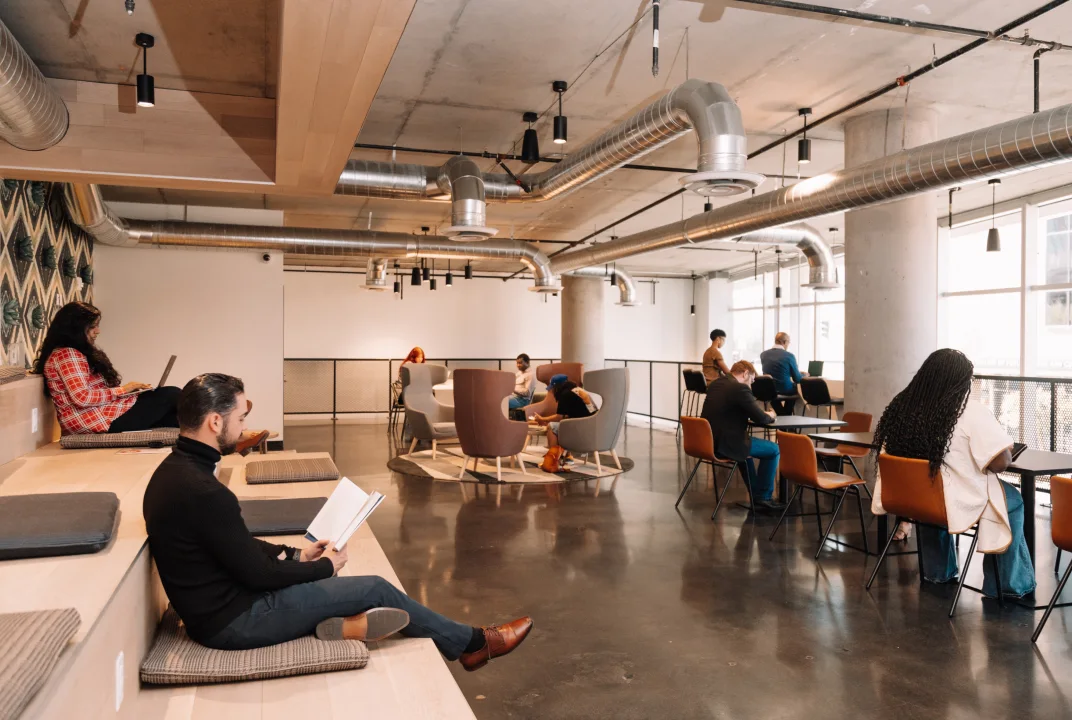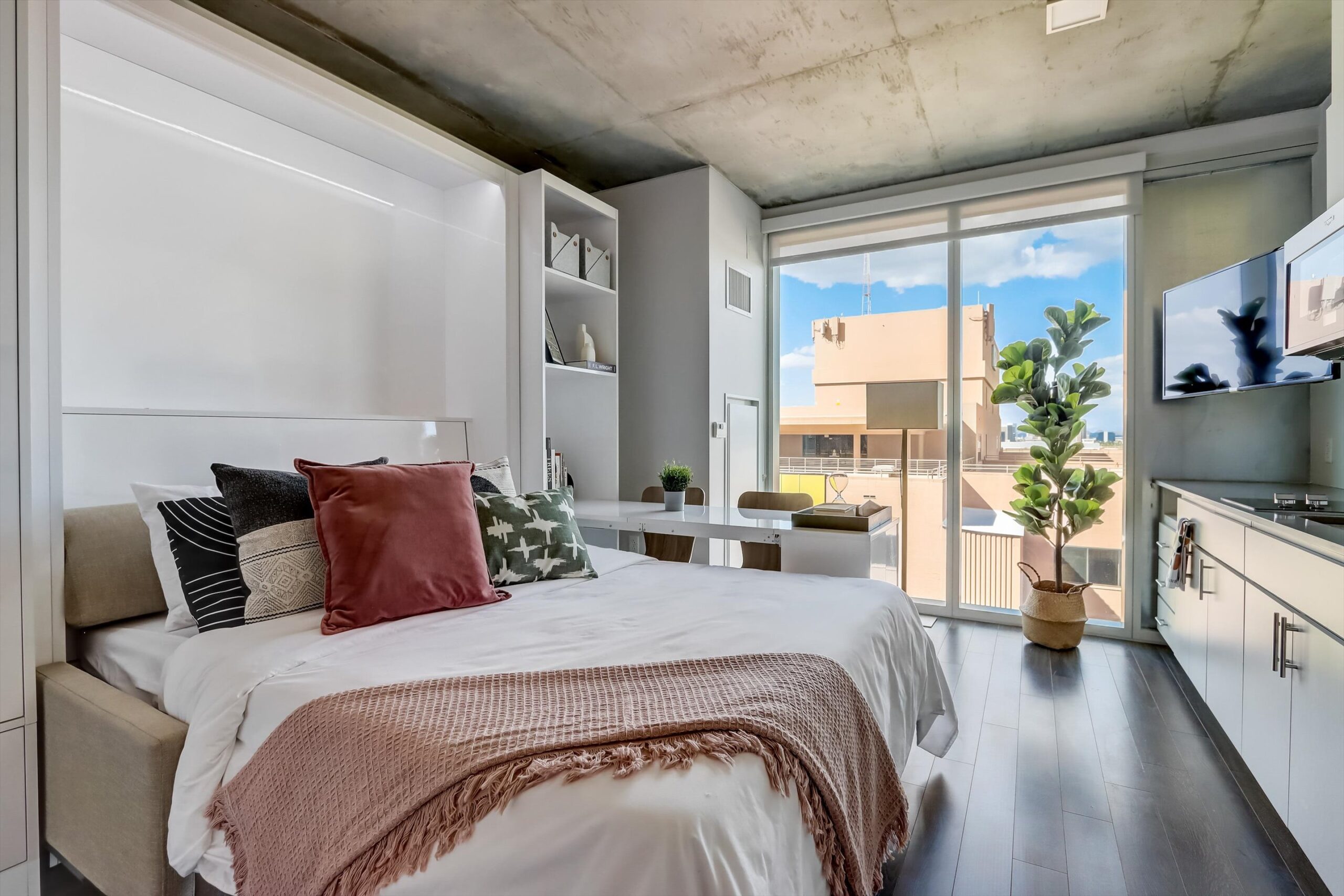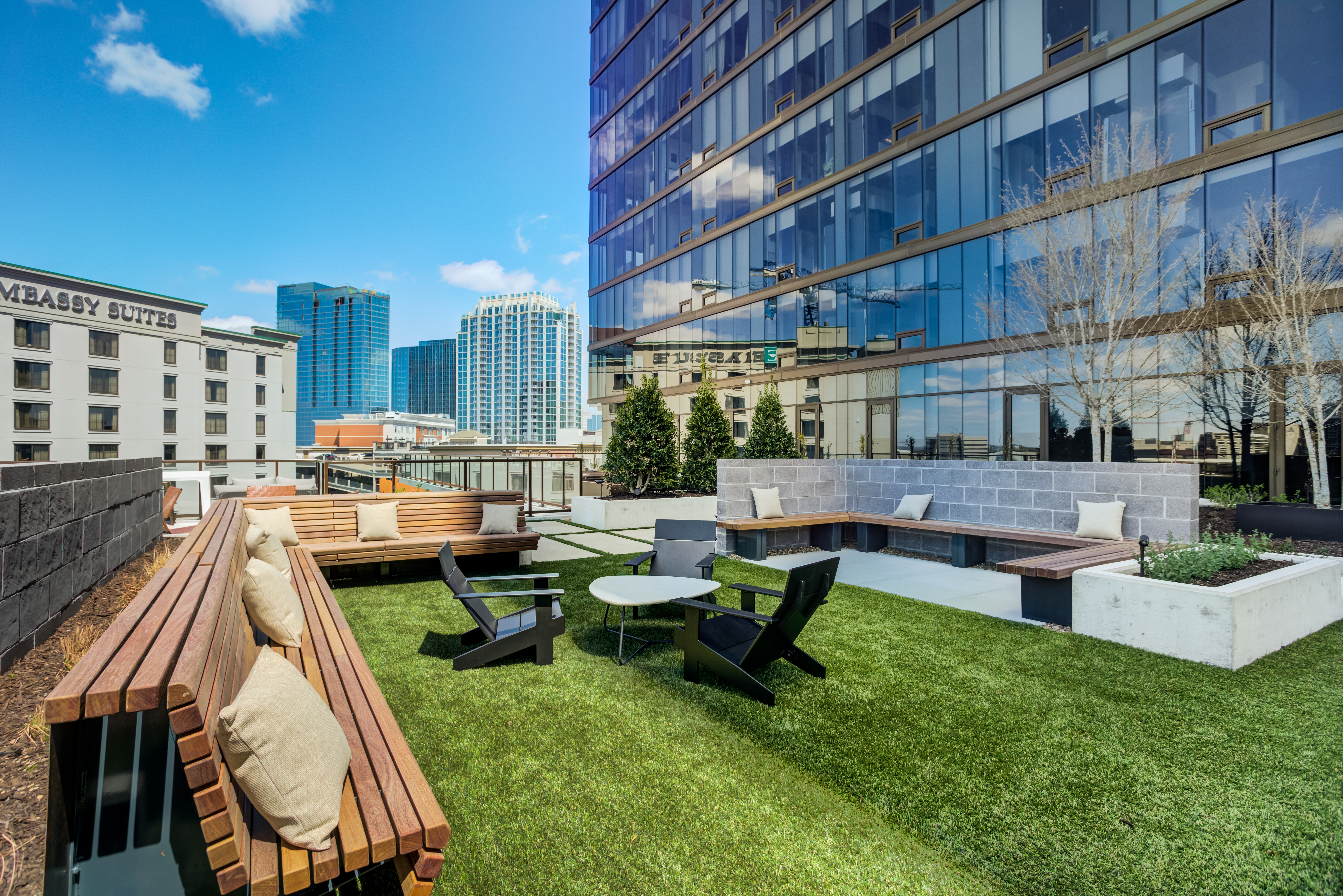With its walkable streets, proximity to top employers and access to iconic sports and cultural destinations, Phoenix draws thousands of new residents seeking their place in this fast-growing desert metropolis.
Moving to a new apartment in Downtown Phoenix is an exciting milestone. But it’s easy to get caught off guard by the hidden costs of renting. Beyond rent, fees, utilities and other expenses can quickly add up if you’re not prepared. Whether it’s your first time renting or you’re a seasoned mover, understanding these costs can make all the difference in managing your budget and settling in with ease.
Let’s break down everything you need to know to plan ahead, avoid surprises and make your move as seamless as possible.
Understanding Apartment Fees
When moving into an apartment, most renters focus on the monthly rent as the primary expense. However, apartment fees — costs that go beyond the rent itself — can significantly impact your budget. These fees are essential, from keeping the property in top shape to ensuring a smooth move-in process. Understanding these additional charges can help you plan better and avoid unwanted surprises.
Apartment fees generally fall into three categories:
- Maintenance Fees: Cover the upkeep of shared spaces and amenities, like pools, gyms and common areas, ensuring they remain clean, functional and enjoyable for all residents.
- Administrative Fees: Include charges like application and move-in fees, which help property management teams handle tasks such as processing paperwork and onboarding new tenants.
- Risk Management Fees: Fees like security deposits or pet charges are designed to protect landlords from risks like property damage or non-compliance with lease terms.
The specific fees you’ll encounter can vary based on factors like:
- Location: Regional laws and market trends also play a role. In some states, for example, landlords are limited in how much they can charge for certain fees, while in high-demand areas, costs may be higher due to competitive markets.
- Property Management Companies: Each company has its own fee structure. Some may bundle services into a single cost, while others itemize charges for applications, amenities and maintenance.
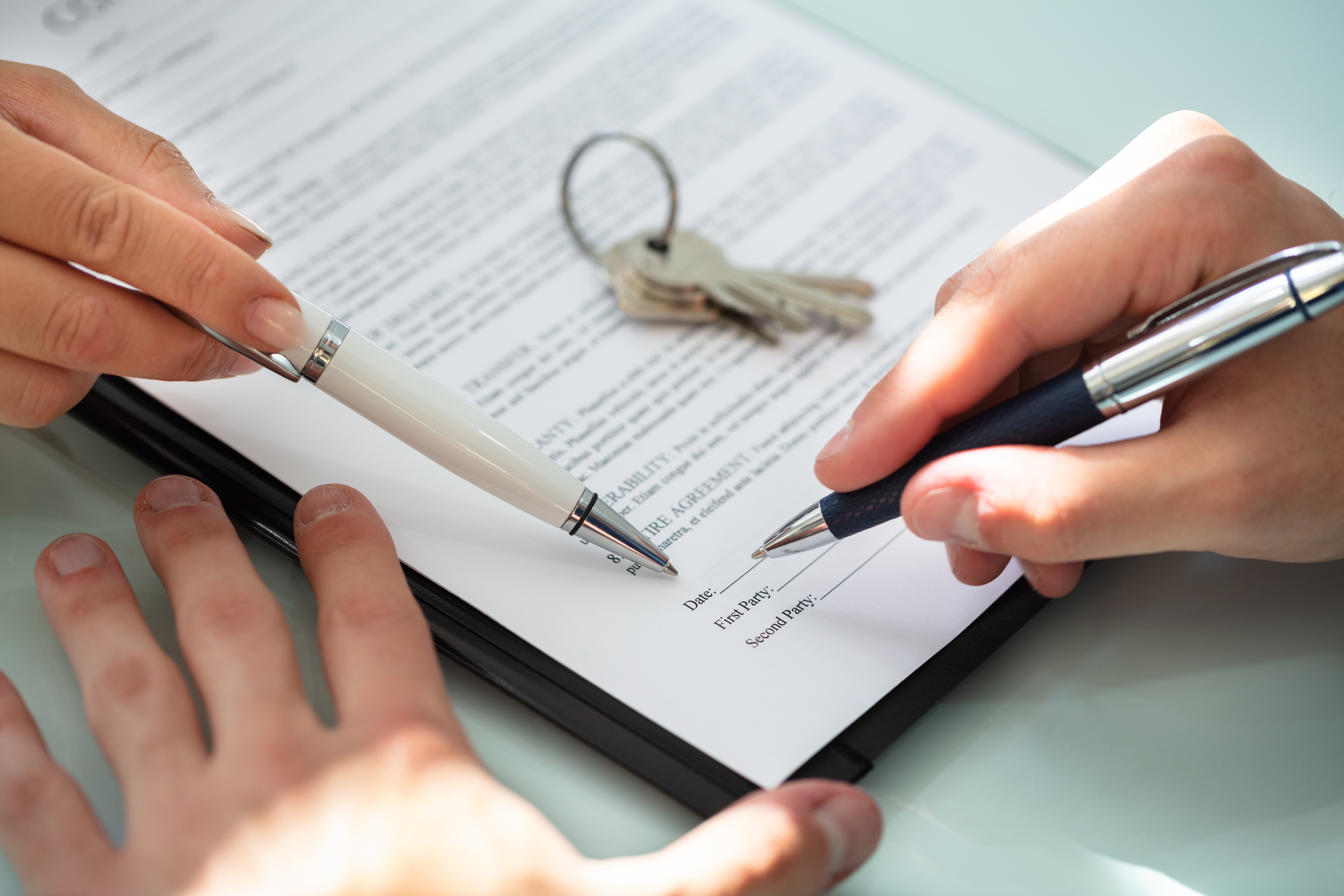
Common One-Time Fees: What To Expect Before Signing a Lease
Signing a lease often comes with various one-time fees beyond just securing your new apartment. These upfront costs can add up quickly, so it’s important to understand what they cover and how they impact your budget. Here’s a breakdown of the most common fees to expect:
- Application Fee: This non-refundable fee typically ranges from $50 to $100 and covers the costs of background and credit checks. It’s a standard part of the leasing process, ensuring landlords can verify applicants’ financial stability.
- Administration Fee: Often ranging from $150 to $250, this fee is usually non-refundable and covers property management’s administrative tasks, such as processing your application, preparing the lease and setting up your account.
- Security Deposit: A refundable deposit held for the duration of your lease, it acts as financial protection for the landlord in case of damages or unpaid rent. The amount typically ranges from $250 to one month’s rent, depending on the property.
- Pet Fees: If you’re bringing a furry friend, you may encounter two types of charges:
- Pet Deposit: A one-time, refundable deposit ranging from $250 to $600, intended to cover potential damages caused by pets.
- Pet Fee: A non-refundable charge that helps cover pet cleaning and maintenance costs.
Kenect Phoenix is dedicated to making your move-in experience as seamless as possible. Certain fees are often waived depending on the season, and sign-on bonuses may be offered to help reduce upfront costs. We offer these incentives, plus transparent pricing, to ensure an affordable and stress-free transition into the community.
Monthly Costs That Add Up
Recurring monthly expenses can significantly influence your budget when renting an apartment. Here’s a breakdown of expected costs to consider:
- Utilities: According to the U.S. Energy Information Administration (EIA), Arizona’s average monthly electricity bill is $148.44. However, in the summer, costs have been rising higher. Water and sewage range from $25 to $50, while trash removal typically costs $10 to $15.
- Amenity Fees: Access to shared spaces like pools, gyms and coworking areas can cost $30 to $150 per month.
- Pet Rent: Monthly pet fees range from $30 to $60 and cover maintenance for pet-friendly amenities.
- Technology Fees: Internet and cable in Phoenix average $77.15 per month.
While these costs are common for city renters, Phoenix remains more affordable than many other major metropolitan areas, according to RentCafe’s Cost of Living calculator. Compared to Los Angeles, where housing costs are 83% higher, or New York City, where housing is a staggering 208% more expensive, Phoenix offers a balance of city amenities with lower overall expenses.
Plan Ahead for Setup Fees
Moving into a new apartment often comes with one-time setup costs, such as deposits for water service or installation fees for internet and cable. Budgeting an additional $100 to $200 for these charges ensures a smoother transition.
Save Money With Bundled Costs
Kenect Phoenix bundles many recurring expenses into your monthly rent, offering clarity and convenience. This approach eliminates the hassle of managing separate bills for utilities and other services, allowing residents to focus on enjoying their city lifestyle.
Here’s how these costs break down for a one-bedroom/one-bathroom apartment (taxable and may vary by floor plan):
- Common Area Electric: $22
- Membership Fee: $35
- Utility Billing Fee: $5
- Pest Control: $3
- Water/Sewer: $15.75
- Trash Removal: $12.13
These bundled services provide significant value by covering essential utilities and maintenance while supporting a high-quality living experience. Residents benefit from premium amenities, efficient utility management and seamless access to everything needed for a comfortable, connected lifestyle. By consolidating these costs, Kenect Phoenix simplifies budgeting, making it easier to enjoy the vibrant city experience without hidden surprises.
Additional Costs To Consider
When preparing to move into a new apartment, there are other costs that can arise beyond rent and monthly fees. These one-time and recurring expenses can add up, so being prepared will help you avoid surprises. Here are some common costs to keep in mind:
- Moving-In Fees: Moving isn’t cheap — costs can quickly exceed $1,000 if you hire professional movers, rent storage units or pay for cleaning services. Then, you have to consider additional expenses like the cost of moving boxes, bubble wrap and renting a U-Haul. Planning ahead and comparing rates can help minimize these expenses.
- Renter’s Insurance: Many apartments require renter’s insurance to protect against damages or theft. Policies typically cost between $10 to $30 per month, offering peace of mind at a reasonable price.
- Deep Cleaning Fees: Some complexes charge for professional cleaning before or after you move out. These fees ensure the apartment is move-in ready for the next tenant but can be an unexpected cost for you.
- Pest Control Fees: While often minimal (ranging from $1 to $5 per month), pest control fees may be included in your lease to cover regular maintenance and ensure a clean living environment.

How To Navigate Lease Agreements and Rental Applications
Securing a new apartment involves more than just signing on the dotted line. Understanding the lease agreement and the application process can save you from unexpected costs and headaches. Here’s how to approach each step with confidence.
Lease Agreements
A lease agreement is a legal document that outlines the terms of your tenancy, so it’s essential to review it carefully. Key clauses to focus on include:
- Security Deposit: Understand the amount required, conditions for withholding and the timeline for its return after move-out.
- Rent Payment: Note the monthly amount, due date and any penalties for late payments. For example, some leases charge a $50 late fee after the 5th of the month.
- Maintenance and Repairs: Clarify who is responsible for maintenance and how to report issues.
- Flexibility Options: Check for clauses about short-term versus long-term leases, as well as fees for breaking the lease early if your plans change.
Application Process
Finding the right apartment starts with a rental application process that helps landlords assess your suitability as a tenant. While straightforward, it’s important to understand what typically goes into the process:
- Application Fee: A non-refundable fee (typically $35 to $75) that covers background and credit checks.
- Provide Documentation: Landlords usually require recent pay stubs, bank statements, tax forms and proof of employment to verify your financial stability.
- Credit and Background Checks: These help landlords assess your reliability as a tenant.
- Income Verification: Employers may be contacted to confirm your salary and employment status.
Tips for Prospective Tenants
Renting an apartment comes with its share of challenges, but careful preparation can help you avoid hidden costs and unexpected hurdles. These tips will ensure you’re well-prepared and ready to settle into your new space without surprises:
- Ask Questions: Inquire about all potential costs, such as application fees, security deposits, pet fees, parking fees, utility costs and move-in/move-out charges.
- Budget for Unexpected Costs: Plan for upfront expenses like application fees, security deposits, first and last month’s rent, and utility setup fees.
- Document Everything: Keep copies of all agreements and communications, and ensure that any terms discussed verbally are reflected in your lease.
Navigating lease agreements and applications doesn’t have to be stressful. By taking a proactive approach and asking the right questions, you can avoid surprises and start your tenancy with confidence.
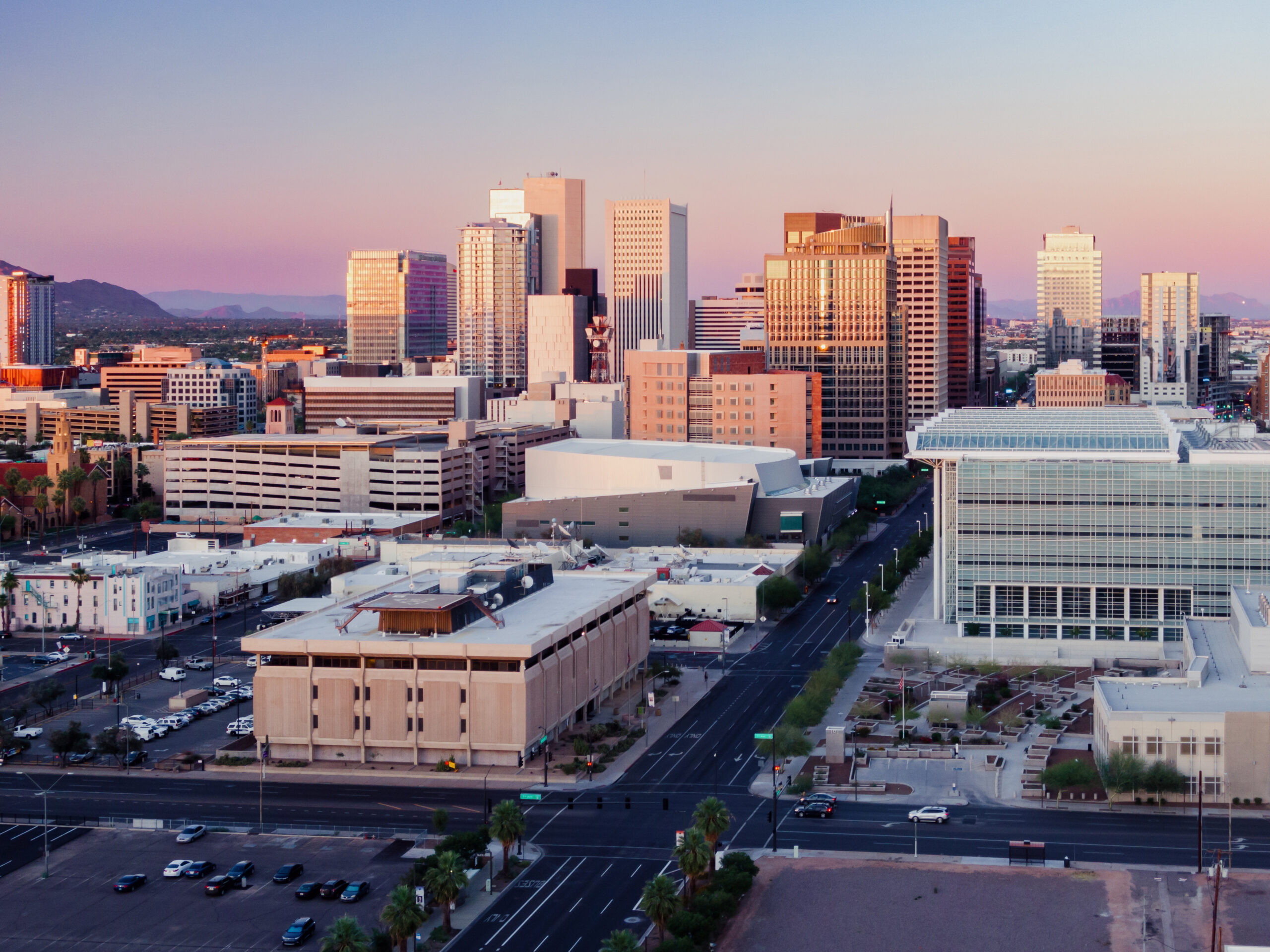
Why Costs May Vary in Downtown Phoenix
The cost of renting in Downtown Phoenix varies widely due to a combination of factors, from location to property features and management styles. Here’s what influences rental pricing in the area:
- Proximity to Key Locations: Apartments near Arizona State University’s downtown campus or popular attractions like Chase Field, Footprint Center and the Phoenix Art Museum tend to command higher rents. The convenience of living close to these landmarks appeals to students, professionals and visitors, increasing demand for these neighborhoods.
- Property Features and Age: You may encounter additional fees if your apartment is in a newly constructed building. Modern complexes often feature amenities like rooftop pools, coworking spaces and fitness studios, which cater to tenants seeking a premium lifestyle and can result in higher overall costs.
- Management Styles: Rental fees and pricing structures vary depending on the property management company. Some companies bundle utilities and amenity costs into the rent, simplifying budgeting for tenants. Others itemize charges for application processing or access to amenities, leading to differences in overall costs.
Compared to surrounding areas, Downtown Phoenix offers a balance of city amenities with a range of pricing options. While suburban neighborhoods are generally more affordable, downtown’s convenience and attractions justify its higher cost of living. Similarly, Downtown Phoenix is more budget-friendly than Scottsdale, which often caters to luxury renters.
Tips for Managing Apartment Costs
Moving into an apartment in Phoenix doesn’t have to be overwhelming. With a little planning and strategic decision-making, you can avoid surprises and keep costs manageable. Here are some tips to help you take control of your expenses:
- Create a Budget: Account for all expected costs, including rent, utilities and additional fees like parking or amenities. This ensures you have a clear picture of your monthly expenses.
- Ask About Bundled Services: Check if utilities, internet or amenity fees are included in your rent. Bundled services can simplify budgeting and sometimes offer cost savings compared to paying for each separately.
- Share with Roommates: Splitting rent and utilities with roommates can significantly reduce individual expenses. For those seeking a streamlined and social living option, Kenect Phoenix offers shared roommate living spaces. These apartments allow you to enjoy collaborative living while maintaining privacy and independence, making it easier to connect with like-minded individuals and manage costs.
- Negotiate Lease Terms: If possible, discuss terms with your landlord, such as reducing upfront fees or negotiating rent for longer lease commitments.
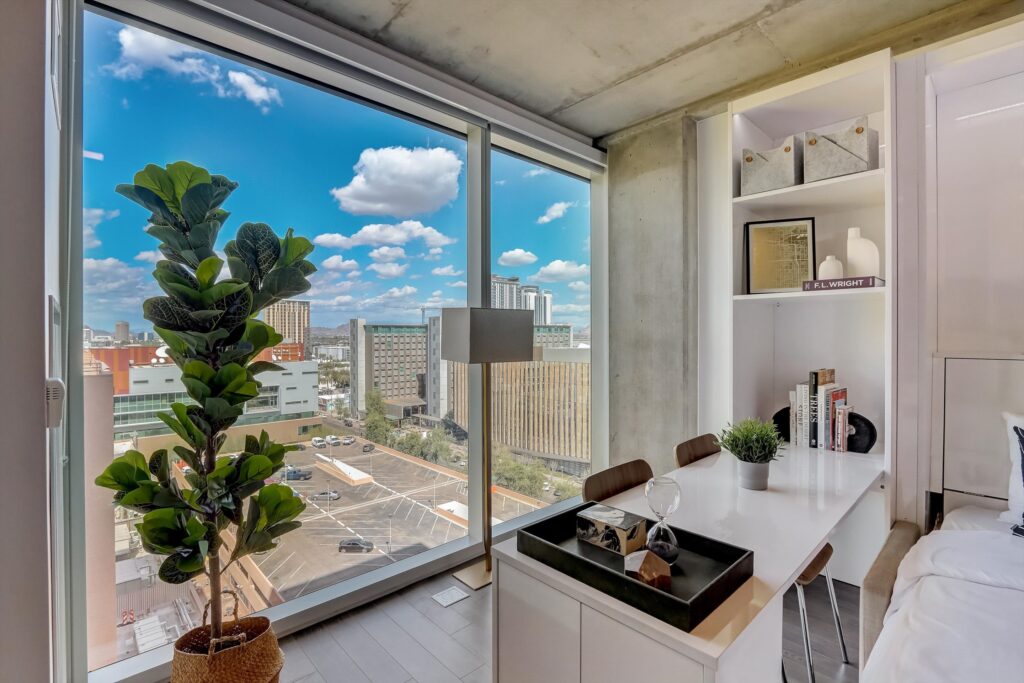
Save on Apartment Costs With Kenect Phoenix
Understanding the full scope of costs involved in renting an apartment is essential for making informed decisions and avoiding financial surprises. From upfront fees to monthly utilities, being proactive during your search allows you to budget effectively and focus on the excitement of settling into your new home. Asking the right questions, reviewing lease agreements thoroughly and considering bundled services can simplify the process and save you money.
If you’re looking for a seamless living experience that combines modern convenience, community and transparency, Kenect Phoenix offers it all. With thoughtfully designed apartments, flexible living options and bundled services that eliminate hidden costs, Kenect creates a space where you can live, work and thrive in the heart of the city.
Reach out to discover how we can help make your next move as smooth as possible.


